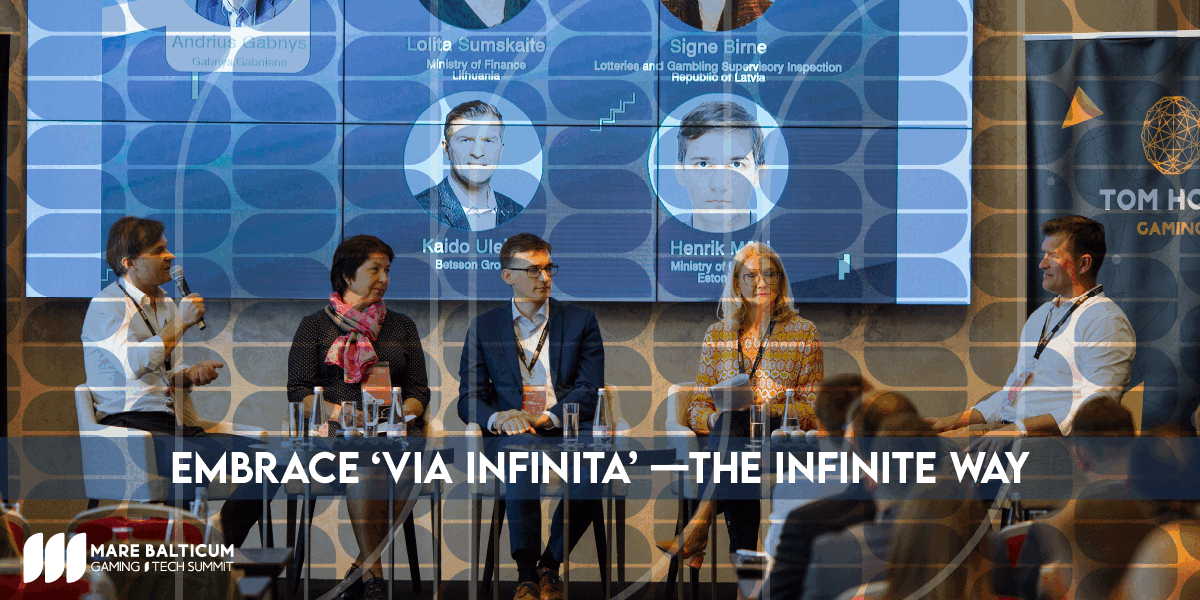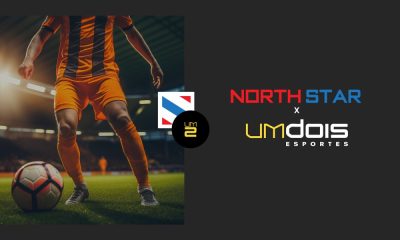Interviews
Cheltenham: Next steps for horse racing

Horse racing is one of the oldest activities in the world and the Cheltenham Festival is one of the spiritual homes of the sport. While the meeting is guaranteed to deliver strong engagement rates for UK-facing operators, there’s less interest among sportsbooks further afield in Europe. However, as horse racing continues to grow on the international stage, are European operators missing a trick by not identifying ways to make Cheltenham Festival and other UK meetings appealing to their own audience?
With the festival kicking off this week, European Gaming spoke to experts in the field on how the sport can make an impact internationally and the best practices required to make it relevant to a wider audience, while maintaining its status in the UK.
Alan Casey, CEO of AllSported
Adam Conway, Head of Trading at SIS
Dylan Casey Head of Paid Media, Checkd Media
Huge opportunities abound throughout the festival which brings a great deal of competition. How can horse racing operators make sure they stand out from the crowd during the event?
Dylan Casey: Too many operators allow their messaging to become like wallpaper throughout Cheltenham week. The ones who succeed are those that offer something unique or present their offer in a way that captures the customer’s eye and paid social advertising can allow operators to do just that.
A major advantage of paid social for horse racing operators is the guarantee of eyeballs and the sequencing of the messaging. The control of adverts being seen in a particular order can allow operators to get creative and even allow them to tailor the offer a customer sees based on their behaviour.
When running paid social for partner’s during the festival, we like them to refresh their messaging and offers daily. By tailoring it to certain races, horses or even jockeys, the messaging is always fresh and can help to avoid ad fatigue.
Not all operators will have the flexibility and resources to promote a different offer for each day of the festival. However, even if an operator’s offer isn’t unique enough to stand out, paid social advertising provides them with a huge opportunity to present that offer in a way that will allow them to do so.
Alan Casey: Content is king. Creating a sense of familiarity and comfort is all-important in cross-selling. Time and again, we see that racecards that feature plenty of content, predictions and ratings improve dwell time significantly.
However, even when an operator has this all-important content, how do they balance the integration times with the results? Separate integrations and multiple API feeds can take time and a lot of resources to put in place. It’s true that content is not always the priority compared to revenue-generating add-ons like cashing out, but without the content to engage customers, it’s likely a sportsbook will only get customers who are there to make a specific bet.
As well as that, consistency and balance matters a great deal, operators don’t need to be stand-out price every race, but an operator needs to be competitive in every race in terms of pricing and place terms. An operator can acquire a lot of customers by having the headline offer of the day or week, but it leaves the door open for customers to exploit that offer and leave.
Adam Conway: Aside from the traditional marketing techniques that operators adopt for the week of Cheltenham Festival, such as attractive promotional offers, offering a vast range of markets that are appealing to both existing bettors and newcomers is important. This includes the use of derivatives, which complement classic markets and allows those with little experience of racing betting to get involved.
Through our partnership with RACELAB we can offer the latest in trading technology which can help operators stay ahead of the smart money and offer prices at opportune times that standout from the crowd.
To what extent is there an appetite for UK horse racing outside the UK and Ireland? How does the sport need to adapt to appeal to this audience?
Alan Casey: From a customer perspective, there is a huge appetite, especially with regards to Cheltenham. It’s an easy sell with the best horses, jockeys and trainers on show and there are always magical storylines that capture the public’s imagination around the festival.
The obstacle for international operators is that the sport requires a huge level of expertise to work within it. The time and financial investment necessary to building a team to monitor the landscape is formidable.
The obvious solution is to outsource, but even then, there are pitfalls. It’s possible that an out-of-the-box service will leave an operator open to inaccurate pricing and following the exchanges blindly is dangerous based on liquidity and latency issues. It can be difficult to acquire and retain horse racing customers and even more so if there is no differentiation in the offering.
Operators need to invest in a flexible solution with a great deal of two-way communication. It’s vitally important to be able to react to your own customers’ bets and factor this into pricing. If an operator is reacting to the market alone, that lag will eat away at their bottom line.
Adam Conway: The cultural significance of major UK horse racing meetings means less for international operators and their customers, but there are still opportunities for non-UK sportsbooks to make the most of these events. The betting product needs be optimised differently for markets where there is less racing heritage, otherwise bettors are not going to be as likely to engage. This means promoting certain markets that can be more relevant to them. For instance, derivatives are becoming increasingly popular with international operators, with markets such as match betting and odds vs. evens far easier to understand. Ultimately, these types of markets don’t require as much insight into the sport itself, which encourages a wider audience to engage with the product. Horse racing needs to attract a new generation of bettors, and outside of the UK these kinds of markets are important to this approach.
Of course, establishing an in-house trading team to cover 24/7 racing events can be costly. In addition, the availability of traders that have the specialist knowledge required can be difficult to find in markets where there is a modest racing culture, which means they cannot efficiently manage pricing and risk. Our SIS Trading Services can help operators in these markets by offering them a fully outsourced solution that leaves the entire racing proposition in the hands of our experts.
How can international operators capitalise on UK horse racing meetings like Cheltenham Festival, which are proven to generate strong bettor engagement in its home market? What can domestic operators do to maintain a slice of the action amid such intense competition?
Adam Conway: One of the main challenges that UK operators face during major UK meetings such as the Cheltenham Festival is profitability. Promotions which include offers like extra places paid can impact the overall margins they can make. These sportsbooks require products and tools that can grow business and maximise margins. At SIS, we are working hard to make this possible by enhancing our Trading Services with the addition of next generation trading tools. In partnership with RACELAB, our traders now have the very latest technology advantage, ensuring we can stay ahead of the smart money and produce more intelligent prices. This includes the Odds Engine compilation software, which has the biggest breadth of content and the most sophisticated trader controls and the highest number of priced horses (including all the local pools).
For international bettors from regions where there is less racing heritage, we have found that it has been useful to offer additional levels of support to operators new to the sport. This means increasing the emphasis on those betting markets that are simpler to understand and don’t require specific in-depth racing knowledge. We can offer operators a managed trading service to help them manage their risk.
Alan Casey: A little education goes a long way. A huge number of people that aren’t full-time racing fans flock to bet on Cheltenham every year because of the status it holds. Investing in the right odds and pricing package that includes content as part of the deal can go a long way towards engaging these fans, as well as seasoned ones.
Cheltenham simply lends itself to this kind of content with some captivating narratives every year. Rachael Blackmore and Henry de Bromhead combining throughout last year’s event and taking the festival by storm stands out as a great example. There are always interesting narratives surrounding Ruby Walsh and Willie Mullins as well. It all captures the imagination and if international operators can gain the means to educate their customers on the ins and outs of the sport, they will be on to a winner.
Domestically, it’s about finding the right balance between trading and marketing teams. Consistency is essential in this product offering throughout the week. Single race odds boosts or acquisition offers don’t guarantee you a customer’s wallet for the four days of the festival or even for an entire day. The key is giving customers a choice of races that spreads out the positions more evenly and then helps the operator engage the customer in each race throughout the festival.
How is price latency and odds generation different in horse racing compared to other sports betting activities? What challenges does this present for operators?
Alan Casey: If we take a traditional sport like football, the teamsheets are announced an hour before kick-off and we see the market shifts as a result. Outside of that, there isn’t a lot of other information flowing into the market.
In horse racing however, there is more information in the market and operators are exposed from the minute they put bets up with no set times as to when information will enter the market. Latency issues become far more apparent in horseracing, dealing with large bets can result in loss of margin from a day’s racing. During the final minutes before the off, any latency or speed issue can result in operators being left badly exposed.
With the market constantly flocculating like this, Push APIs that inform operators the instant a price has changed can be invaluable, leaving no time for incorrect pricing on a sportsbook. Mere seconds of inaccurate pricing can be the difference between profit and loss.
Powered by WPeMatico
Holly Fairweather Head of Account Management at House of Brands provider White Hat Studios
Women in iGaming Interview: White Hat Studios’ Holly Fairweather
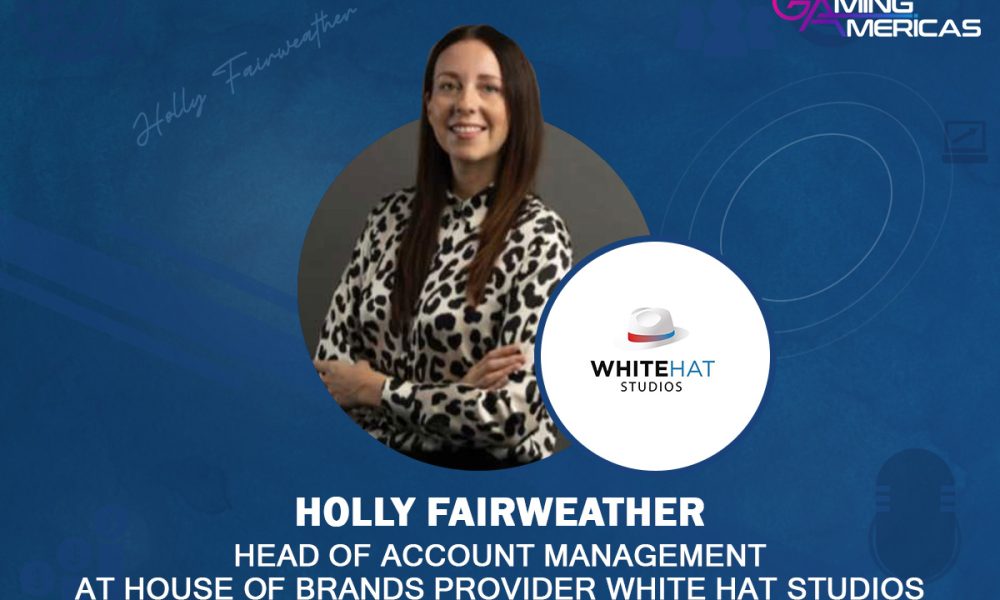
Holly Fairweather, Head of Account Management at House of Brands provider White Hat Studios, sits down with Gaming Americas to discuss the growing influence of women in the iGaming industry, and highlights how more can be done to improve the overall gender imbalance
Gaming Americas: Since joining the industry in 2018, have you noticed a change in how women are represented within iGaming companies, as well as general attitudes?
Holly Fairweather (HF): When I reflect on the past six years, it feels great to say I have seen a lot of positive changes in our industry and more importantly, an ever-increasing drive to address gender diversity. There is still work to do, and I am reminded of this attending our industry events, where it’s very evident we still lack female presence in C-level roles and on expert panels. It’s also not hard to see walking around conferences the overall gender imbalance that exists. With that being said, I do feel it’s moving in the right direction and I am regularly inspired by women around me being promoted to senior management roles, providing great mentors and role models. Awareness of gender diversity and celebrating success is continually being pushed via various channels, and for me plays a big part in why we are seeing more women have the confidence to progress in their careers and more women enter the industry. It’s also important to say, and why I think change is happening more, that the want of women to succeed and to increase female presence in our industry, is indeed backed by a strong support network of women supporting women, but also of the men in our industry.
Gaming Americas: How important are groups like Global Gaming Women? What kind of initiatives have they offered to help your own career development?
HF: I’ll be honest, I’m still learning about all that Global Gaming Women offers. Working in the US market I see GGW as a substantial network which offers reams of support from training courses, lean in circles and mentorship and networking events just to name a few. I have taken part in a few of the industry wide networking events, and really enjoyed them, connecting with some amazing people, learning more about the industry. One of my objectives this year is to participate in more events, adding value where I can whether that’s within the GGW network or through other avenues.
Gaming Americas: What more can the industry do to make it more appealing to women and ensure they are better represented within organizations?
HF: It’s got to start within each individual company taking responsibility for equal representation. This is not a tick box exercise to achieve a target on a gender split % by x date but must be about promotions and roles being rewarded to the best candidate for the role, regardless of gender, ethnic background, or sexual orientation. We need to shout about the success stories of DEI within the industry, creating an inclusive work environment will attract not just more women but more candidates overall, increasing the talent pool.
There is also a piece around exposure and shining the light on the fantastic women we have leading the way. Sharing their career paths, the good, and the challenges, to provide relatable examples of success. To make women in gaming not about the stats or portray the headline as a negative but more around showcasing the women that are successful and why, helping more women relate and pursue a similar path if this is what they wish to do.
Gaming Americas: What advice would you give to the next generation of women that are looking to make a breakthrough in the industry?
HF: This is a good one! First and foremost, you lead your own progression. Be proactive in building your network, push yourself out of your comfort zone to attend networking events. Reach out to other women in the industry for support and mentorship. That is on you to drive.
Immerse yourself in a team with values that align with yours, a team that welcomes and promotes diversity of all types and supports and rewards on merit are key.
Build your knowledge, for me knowledge is confidence. Quickly realise it is ok not to know everything, ask the questions and find out. Be solution-oriented, supporting your superiors will get you noticed for going over and above and adding value to your team and company.
I was told ‘people do business with people,’ which I stand by and could not be truer in the igaming industry. Always treat everyone with respect, be kind, be yourself, but don’t forget to back yourself! Relationship building is so key in this industry and has helped me progress to where I am today.
Lastly, take risks. And by this, I mean sometimes you must step out your comfort zone and push yourself to try something different to progress to the next stage. So far, the most pivotable moment in my career and biggest risk I have taken, and I’m sure Andy Whitworth (CEO) and the White Hat Studios (WHS) team won’t mind me saying, was accepting the job at WHS. A brand-new supplier to the US, no content live alongside the fact I had never worked in the US market, so of course there was an element of risk. It was, however, a calculated risk as I was joining a team of experts, senior level management I had worked for previously, in an ever-growing US market. A no brainer now when I look back.
Gaming Americas: From a White Hat Studios perspective, what DEI initiatives does the company put in place?
HF: DEI of all types is something I believe increases the performance of a team, and is something we are extremely passionate about at WHS. As we grow and expand, maintaining a strong culture has never been more important. We recently held a WHS workshop in Prague, with one section of our day spent holistically agreeing and locking down our values as a team, ‘Who we are, what we stand for ‘and ‘treating everyone equally’ is now embedded in our company culture as one of our five core values.
I have been lucky in the fact I have never felt that my gender has held me back in my current role and previous igaming companies. Although I understand this has not been everyone’s experience, I truly believe the more we celebrate success, drive awareness, embed inclusion within our companies, and work together across DEI as a whole, we will continue to see women progress and take on careers in igaming.
Compliable
Reputation matters – the importance of supplier licensing
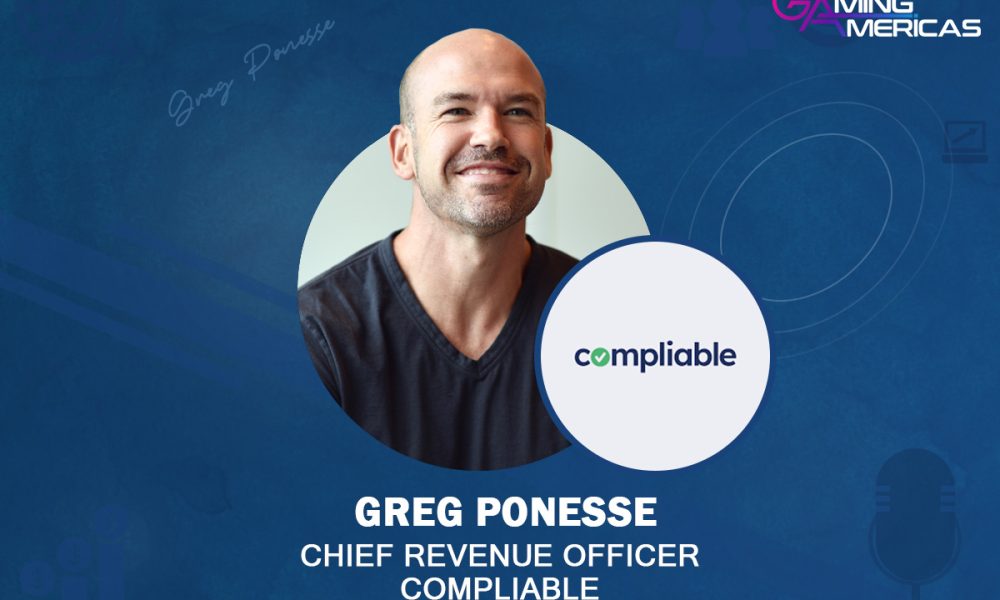
More and more jurisdictions are introducing licensing for B2B providers in an attempt to boost regulatory oversight and restrict black market activity with Sweden and Denmark recent examples. In this piece, we talk to Greg Ponesse, Chief Revenue Officer at Compliable, about how the increased compliance burden can favour suppliers’ standing in the iGaming ecosystem.
Have you seen a shift in attitudes from suppliers to only provide products in regulated markets?
We have seen that suppliers that have traditionally taken a .com approach are starting to move towards being licensed to secure additional revenue and more customers but also to improve their overall reputation and standing. The perception of brand integrity plays a big part of the decision-making process because some operator partners might be reluctant to work with suppliers if they have a mainly grey-market approach.
In the US, supplier licensing has always been the norm, so where we are seeing attitudes changing is primarily with European suppliers. Although most suppliers might have a few licenses that they need to manage in key markets, they are now better understanding the importance of being seen as fully compliant across the board as regulation changes and operators are looking for trusted partners.
Some of these brands are massive enterprises who are now trying to get a handle on how to manage all their licenses across multiple regions, and we have seen an increased interest in our software to support that.
What has been the driving force for this – regulator pressure or business strategy?
It’s a little bit of both. Regulator pressure is definitely a big one as gambling becomes more ubiquitous and mainstream. It’s the responsibility of the government to provide structure and regulation to ensure safety for consumers and many are starting to realize that suppliers play an equally important role in that as operators. We have recently seen examples of locally licensed suppliers being fined by regulators for offering their products to unlicensed operators, so providers need to be on the ball to ensure their reputation stays intact.
That said, the grey market suppliers up to this point have stayed in grey markets because that’s what was available to them. Now you’re seeing new markets opening up like North America, which has been huge, where all states require suppliers to be licensed. These grey market players that have previously focused on Europe now see that there’s revenue over there to be gained, so they need to pull up their socks and play the game.
As a business strategy, suppliers can only remain in black markets for so long, avoiding paying taxes and declaring revenue. In a competitive marketplace, suppliers can definitely benefit from being more established and having numerous licenses. Operators might be wary to work with companies that don’t take compliance seriously so being able to show that you have X number of licenses and that you have infrastructure in place shows that you’re serious, and that you know what you’re doing. It kind of sets the table for you to have a soft landing and to be able to begin those discussions with potential partners.
A sole focus on regulated markets would suggest a negative impact on profits so what benefits do suppliers see from being licensed?
If the train is only going in one direction, you eventually have to hop on it. Moving away from grey markets will inevitably have a negative impact on profits but you then have to look at where you can find additional revenue. If you are a licensed supplier, it does allow you to work with the big local operators. You have to decide on whether you can make more money as a grey-market supplier or by going into markets being licensed and making the most of what that offers.
Do you expect more jurisdictions will introduce B2B licensing going forward?
Yes, for sure. Gambling is ubiquitous now and governments recognise that it’s a great revenue generator for them and it also helps with ensuring responsible gambling. With licensing, you provide a framework, infrastructure, and environment that is safe, and it ensures that everyone is on a level playing field. That needs to include all different sides of the industry such as operators, suppliers, affiliates etc. If everyone in the ecosystem follows the rules, it will be a better place for all.
What are the big challenges that suppliers face when it comes to licensing in 2024 and beyond?
Your licensing strategy, so basically, where you are going to go get licensed. This process takes time and resources, and you want to make sure you are prepared before you start talking with operators. They will want to know, just like as with any other vendor, if you are licensed as a supplier.
If we use the US as an example, there is no shortage of suppliers that want to partner with the available operators, so you need to know who you want to work with and where, and then you have to make sure you sort those applications properly. That is all about getting the right advice or using software because if you fail the process, you will end up at the back of the queue and your go-to market strategy will be delayed.
What, if any, are the key differences between licensing in the US and regulated markets in Europe and other regions around the world?
For starters, every state in the US acts as if it is its own country and the licensing process is very complex and rigorous. In Europe, it was initially somewhat more relaxed. You got your Malta licence, and that was then good for all countries in Europe. We’re now seeing a bit of backtracking, with more and more countries getting tougher on rules and regulation.
Increased supervision, with regulators having more oversight, means there is no hiding and I think that is what we’re moving towards on a global scale.
I do believe that most suppliers and operators prefer a regulated market because it separates proper companies from the bad ones. If I was a large operator or supplier that invested time and money into licensing and establishing a compliance team, I would feel good about that because there are so many companies that can’t do it. There’s this element of pay to play, so to speak, in order to really maximize your profits in a region.
Interviews
Changing the game for content aggregation
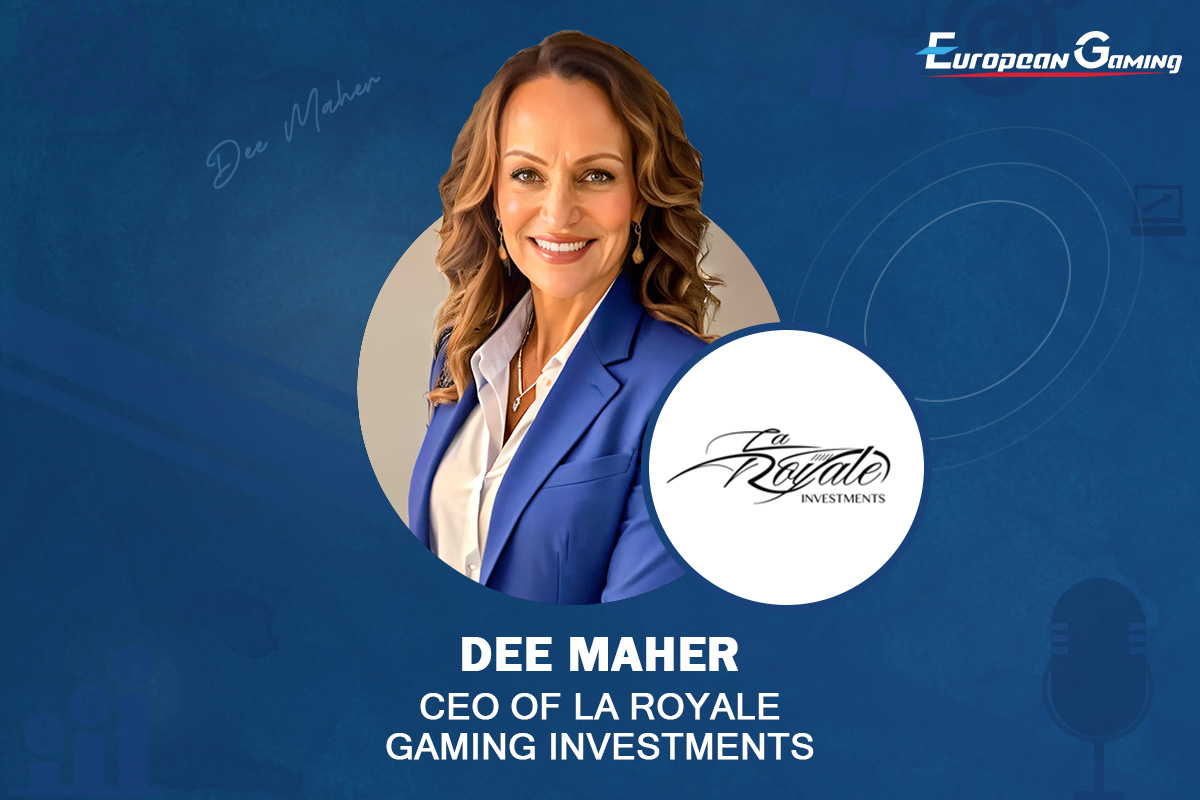
We sit down with Dee Maher, CEO of La Royale Gaming Investments, to learn more about her recent appointment as CEO and how the company is set to challenge the gaming industry’s conventions.
La Royale Gaming Investments has bold plans to become a true power player and redefine industry standards. Through acquisitions and mergers, it intends to build an “ecosystem” of online and offline companies, covering both B2B and B2C. Its first play is Quanta, a unique content aggregation platform designed to leverage a high volume with a focus on delivering unparalleled value at a fair price, aiming to introduce innovative solutions for both operators and suppliers. To learn more about La Royale and its goals for the coming 12 months, we spoke with recently appointed CEO, Dee Maher.
Tell us more about your journey to being appointed as CEO of La Royale Gaming Investments.
I’ve been working in the global online gambling industry for many years now in roles covering legal and compliance leadership. Over the past 15 years, I have had the privilege to work for some of the biggest organisations in the business including the likes of Genesis Global, Betclic, Vera&John and Evolution Gaming. When I was approached about joining La Royale Gaming Investments as CEO, it was an offer that I couldn’t turn down. Recognising the company’s ambition to forge a transformative path in the gaming sector, I was compelled by the vision to lead change and drive innovation. My decision to accept was driven by a profound commitment to spearhead our mission, leveraging the remarkable talents of our team to redefine industry standards and make a lasting impact.
What are your main responsibilities and where are you looking to progress most?
I have been tasked with supervising the expansion of our investment portfolio by recognising opportunities that are aligned with our online and offline strategies. I am also overseeing the day-to-day running of Quanta, our inaugural venture, which stands out in the crowded marketplace as a game aggregation platform like no other. In terms of where we are looking to make the most progress, we plan to curate a unique ecosystem of innovative offline and online gaming companies through strategic mergers and acquisitions which combined will make La Royale Gaming Investments a real tour-de-force in the sector and one of the top tier companies with interests across both B2B and B2C.
How is La Royale Gaming Investments going to disrupt the industry? Is it taking a different approach?
La Royale Gaming Investments is poised to redefine the gaming industry with a strategy rooted in bold vision and innovation. We have built out the best team to deploy these ambitious plans and achieve our strategic goals. We are well-capitalised and have lined up our first run of acquisitions, starting with Quanta. Our approach focuses on identifying USPs within each business we engage, introducing ground-breaking offerings to the market. With Quanta, that is being the first mass-market game aggregation platform, creating value for both operators and suppliers. This is an industry where many follow the same blueprint, but we know that to pull distance from our competitors, we need to do things a little differently.
I think our biggest point of difference is that we are curating an ecosystem of innovative businesses across all areas of gambling and gaming. This includes both online and offline, and both B2B and B2C. There are not many organisations in the industry that are this broad and diverse so again this is an area where we can really stand out.
You mentioned that Quanta is the first mass-market game aggregation platform. What does it offer operators and suppliers and how is it different to other solutions in the market?
Quanta has been developed so that it can handle the largest possible volume of games from a diverse array of providers and seamlessly integrate with a vast network of operators. Due to this volume, we can offer the best commercial deals to both parties. Our scale, in collaboration with leading studios and casinos, positions us as a frontrunner in content distribution. Furthermore, we are committed to achieving certifications across all significant regulated markets. For operators, this means they can quickly and easily add games to their lobbies and for studios, it means access to the widest distribution network and thanks to our minimum reseller fee structure, we make this access available to all providers from the established titans to the rising stars.
But just to be clear, Quanta transcends the ordinary, offering not just a cost-effective solution but a sophisticated high-performance platform. The platform is state of the art, allowing for seamless integrations for both operators and suppliers while ensuring the highest standards of resilience and performance. The concept is simple – high volume, low cost – but the advanced technology and strategic foresight required to realise this vision set us apart from conventional solutions in the market.
Content provision is highly competitive so what makes you confident that Quanta will be heard above the noise being made by other providers and aggregators?
Our mass market approach is unique and is already helping us to stand out and generate significant interest from both studios and operators. In the current challenging economic landscape, efficiency and cost-effectiveness are paramount for all stakeholders. But our advantageous commission structure is not the only way we are helping here. At present, operators often have many integrations with various aggregators and directly with game providers. This is inefficient and expensive. With Quanta, operators can plug into a single platform and access all the content they need for each market they target allowing them to save significant resources or to deploy these resources elsewhere.
On the subject of the current economic climate. Is now a good time to be building a business based around M&A?
That depends on how you are approaching your M&A activity and whether an organisation is taking on debt. Timing can be crucial here – you just have to look at the likes of 888 to see how a change in the direction of the wind can have a brutal impact on the wider organisation. That said, there are always plenty of opportunities to acquire great businesses, technologies, solutions and so on, and part of my remit as CEO is to spot these and if they align with our wider approach, make a move. I think the 12 months ahead will be incredibly exciting when it comes to M&A, with some truly transformational deals taking place – something that La Royale Gaming Investments intends to be a part of.
The post Changing the game for content aggregation appeared first on European Gaming Industry News.
-

 Australia6 days ago
Australia6 days agoCrown Reinstated at Sydney Casino
-

 Compliance Updates6 days ago
Compliance Updates6 days agoBrazil’s Ministry of Finance Appoints Régis Dudena as Secretary of Prizes and Betting
-

 Eastern Europe6 days ago
Eastern Europe6 days agoEGT Digital and PublicWin: A Successful Combination in Romania
-

 Asia6 days ago
Asia6 days agoOnlyplay Enters into Strategic Partnership with Ritchie Rabbit
-

 Latest News7 days ago
Latest News7 days agoContinent 8 Technologies set to debut in Brazil: Latin America’s next iGaming frontier
-

 Arturo Vidal6 days ago
Arturo Vidal6 days agoArturo Vidal is the new ambassador of the betting site Estelarbet
-

 eSports5 days ago
eSports5 days agoNorth Star Network Acquires Um Dois Esportes
-

 Baltics5 days ago
Baltics5 days agoEvoplay bolsters presence in Lithuania with Betsafe deal

